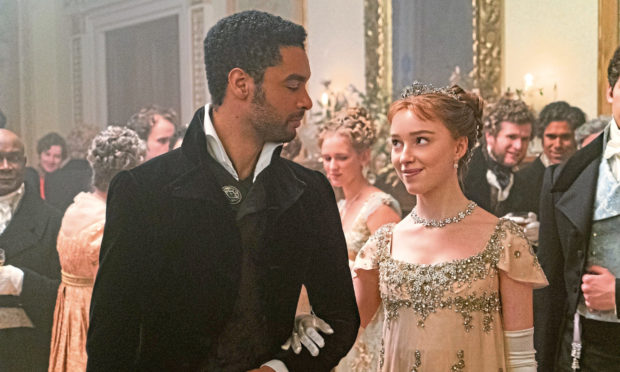Bridgerton – a love saga about toffs set in the Regency period – was a Netflix hit over Christmas. But something heroine Daphne Bridgerton said in the finale to her husband, the Duke of Hastings – a troubled man to say the least – caught my attention.
“So, it was all about a vow then?” she asked. It was a vow which threatened to derail her dreams.
It is virtually six years to the day since Alex Salmond spoke to me in Strichen about a different “vow” – one which derailed his independence campaign.
Our interview in a hotel function room now reminds me of another blockbuster, Game Of Thrones. Like a knight of the north in that tale of bloody power struggles, Mr Salmond led his army into Scotland’s Battle of Referendum Day in September 2014.
Fairly soon after that he recalled the experience of being put to the sword by “The Vow” with me. This powerful weapon was wielded by another battle-hardened Scottish political warrior, Gordon Brown.
The former prime minister pulled the carpet from under “Yes” at the last minute. The Vow promised to lavish more powers on Edinburgh and herald a new era of federal government.
Frightened rabbits among Westminster leaders jumped in support of what Mr Brown had pulled out of his hat. His intervention was a magnet for floating voters because he projected more credibility than London, Mr Salmond lamented.
The reason I mention it again is that enhanced federalism has re-surfaced as a potential alternative if Indyref2 ever happens. It’s a form of cakeism which had a big attraction to voters. Yes, the joy of having our cake and eating it never wanes.
The Vow was interpreted as virtual Home Rule to do our own thing, but without losing the insurance policy of being in a cosy union. This proved handy in a pandemic.
Could this be equally attractive again when pens hover over ballot papers, especially with recent trials and tribulations fresh in our minds?
It’s hard to see federalism being debated much if the SNP succeeds in getting Indyref2 done quickly. But is that going to happen any time soon in the wake of our pandemic destruction? Even May’s Scottish election seems at risk.
So we could have plenty of time to review the UK’s devolved structure, especially if it takes 41 years for another referendum – did Boris Johnson really mean that?
I cannot see Mr Johnson risking Indyref2 during his premiership after Brexit and Covid-19, which are already enough defining moments for any legacy.
He will be hoping – God forbid, for Nicola Sturgeon – that Brexit goes down well in Scotland, eventually. It might take two or three years to see which way the wind is blowing, but that would be a better time to judge polling opinion over another referendum.
The SNP was ridiculed for doomsday no-deal warnings, and then refusing to back an EU trade agreement. But voting for a deal would have made the SNP’s 2016 manifesto pledge – that Brexit “against our will” was justification for another referendum – emphatically null and void.
What is conveniently overlooked by Ms Sturgeon publicly is that one million of her people (almost 40%) voted for Brexit, but the result is presented misleadingly as Scotland speaking with one voice.
Spin is one thing, but there is a stark warning from shocking scenes in Washington about careless rhetoric in our own Brexit and independence campaigns.
The SNP also points to an election landslide as proof of support for independence. They won a huge share of seats at the last general election in December 2019, but with less than half the votes. A far larger number of votes was shared among pro-union parties in Scotland.
The SNP had 45% of the vote – enough to win a normal election between parties, but not a referendum. It was virtually the same figure as the defeated “Yes” share of the referendum vote in 2014 and the SNP’s constituency results in the Scottish 2016 election. Yet in this shocking pandemic, pro-independence polling sentiment increased significantly and consistently. The next Scottish parliamentary election is unofficially Indyref2.
But it is not the expected landslide of SNP seats from the current voting formula which will offer the most reliable guide to independence support.
We must look instead at crucial underlying vote share between Ms Sturgeon and pro-union parties for an accurate picture.
Otherwise, it might appear to have all the fury of Game Of Thrones, but is really nothing more than the The Emperor’s New Clothes.
